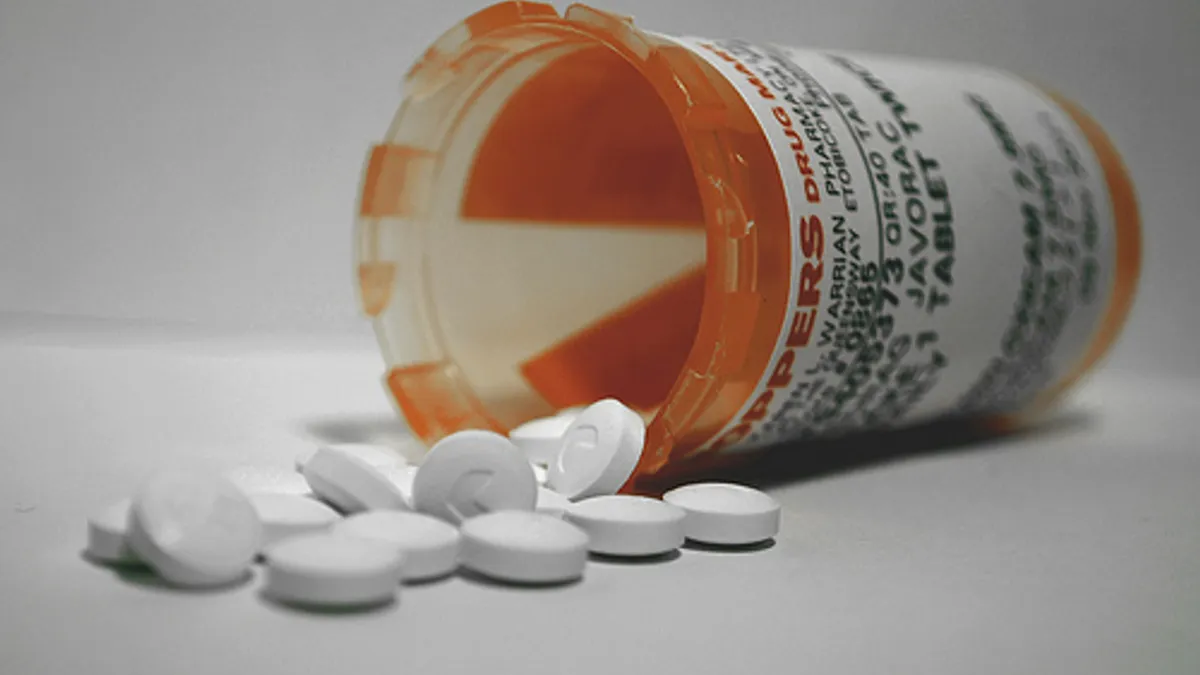Dive Brief:
- Oakland, CA-based environmental group As You Sow is calling on pharmaceutical companies to develop an industry-wide policy for collecting and disposing of unused and expired drugs and medical accessories.
- The organization has asked AbbVie, Johnson & Johnson, and Merck & Co. to work with its peers to develop a national network of local take-back programs. Currently, only 1% of U.S. pharmacies offer a drug take-back program, according to Conrad MacKerron, senior vice president of As You Sow. Yet Belgium, Brazil, Canada, France, Mexico, Portugal and Spain all have pharmaceutical industry-financed collection programs.
- In September, the EPA proposed two hazardous waste rules: one to ban healthcare facilities from flushing pharmaceuticals down sinks and toilets, and one to mandate establishment of protocol to improve labeling of hazardous waste. These proposals followed a lawsuit brought by the pharmaceutical industry against California’s Alameda County and Washington’s King County, which began requiring companies to pay for take-back programs. The Supreme Court rejected the argument that mandating companies to pay for such programs was unconstitutional.
Dive Insight:
Improper disposal of prescription drugs contributes to water pollution when they are flushed down toilets, and other lax disposal methods have been shown to facilitate drug abuse.
The proposed EPA rules are intended to protect people and the environment. The "no-flushing rule" could prevent the dumping of more than 6,400 tons of hazardous waste pharmaceuticals annually, projects the EPA. The "hazardous waste labeling" rule would improve the safety of facilities, employees and the general public, while providing facilities flexibility in hazardous waste management and clear instructions, according to the agency.
"We believe the companies that put medications on the market and profit from them should be primarily responsible for financing take-back systems," MacKerron said to Waste360, adding many people stockpile drugs because they have no collection and disposal options, which he said "can have tragic consequences."
Many waste management companies are thinking ahead, working to corner the market of medical waste disposal for safety and to reduce landfill burden, including California company Ingenium.
Heidi Sanborn, executive director of the California Product Stewardship Council, said, "We heartily endorse As You Sow’s efforts to encourage pharmaceutical companies to be leaders in protecting public health and offer U.S. consumers the same convenient drug take-back programs they operate in many other countries."









